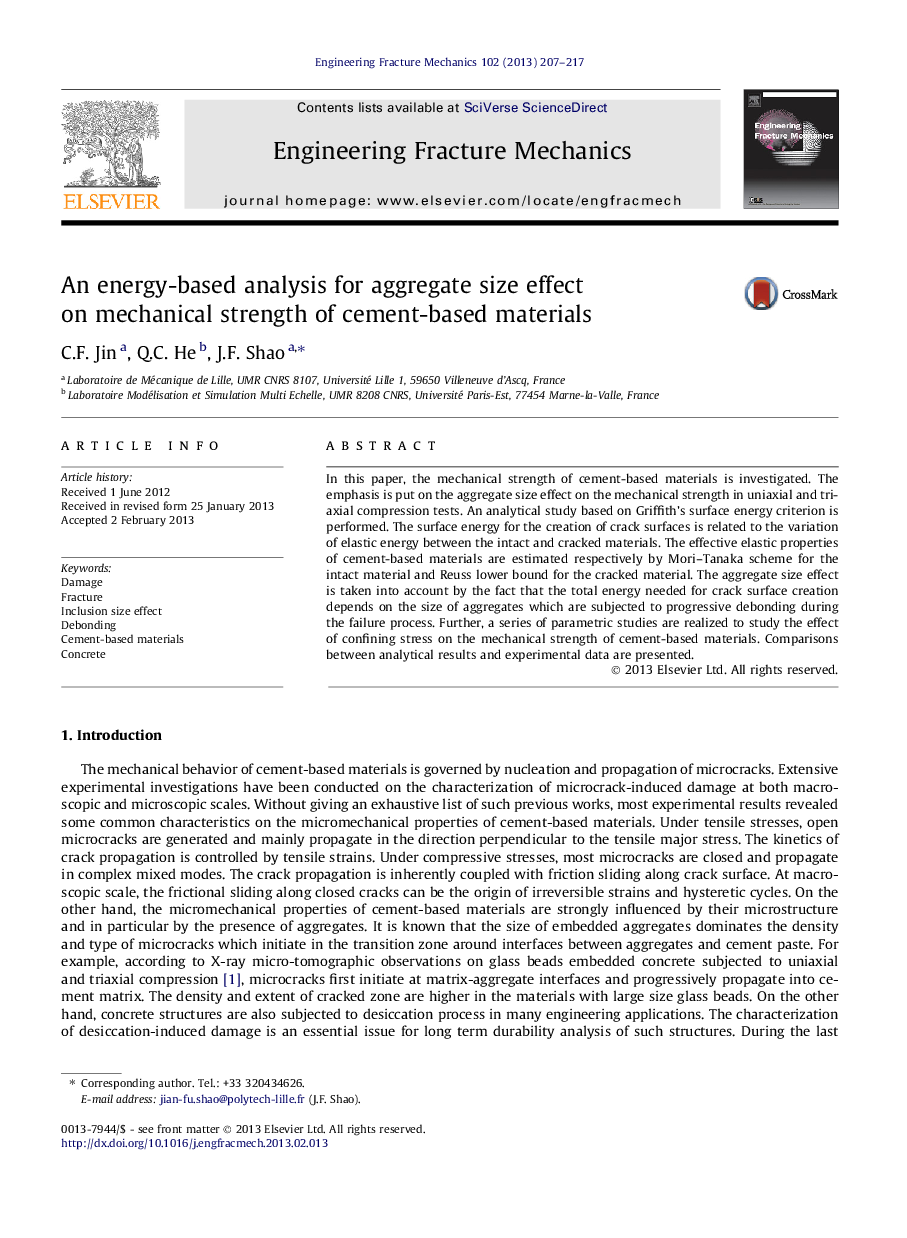| Article ID | Journal | Published Year | Pages | File Type |
|---|---|---|---|---|
| 770890 | Engineering Fracture Mechanics | 2013 | 11 Pages |
In this paper, the mechanical strength of cement-based materials is investigated. The emphasis is put on the aggregate size effect on the mechanical strength in uniaxial and triaxial compression tests. An analytical study based on Griffith’s surface energy criterion is performed. The surface energy for the creation of crack surfaces is related to the variation of elastic energy between the intact and cracked materials. The effective elastic properties of cement-based materials are estimated respectively by Mori–Tanaka scheme for the intact material and Reuss lower bound for the cracked material. The aggregate size effect is taken into account by the fact that the total energy needed for crack surface creation depends on the size of aggregates which are subjected to progressive debonding during the failure process. Further, a series of parametric studies are realized to study the effect of confining stress on the mechanical strength of cement-based materials. Comparisons between analytical results and experimental data are presented.
► An energy-based model is proposed for predicting failure strength of concrete. ► Effects of aggregate size on mechanical strength are taken into account. ► Effects of confining stress are also considered. ► Comparisons between theoretical predictions and experimental data are presented.
